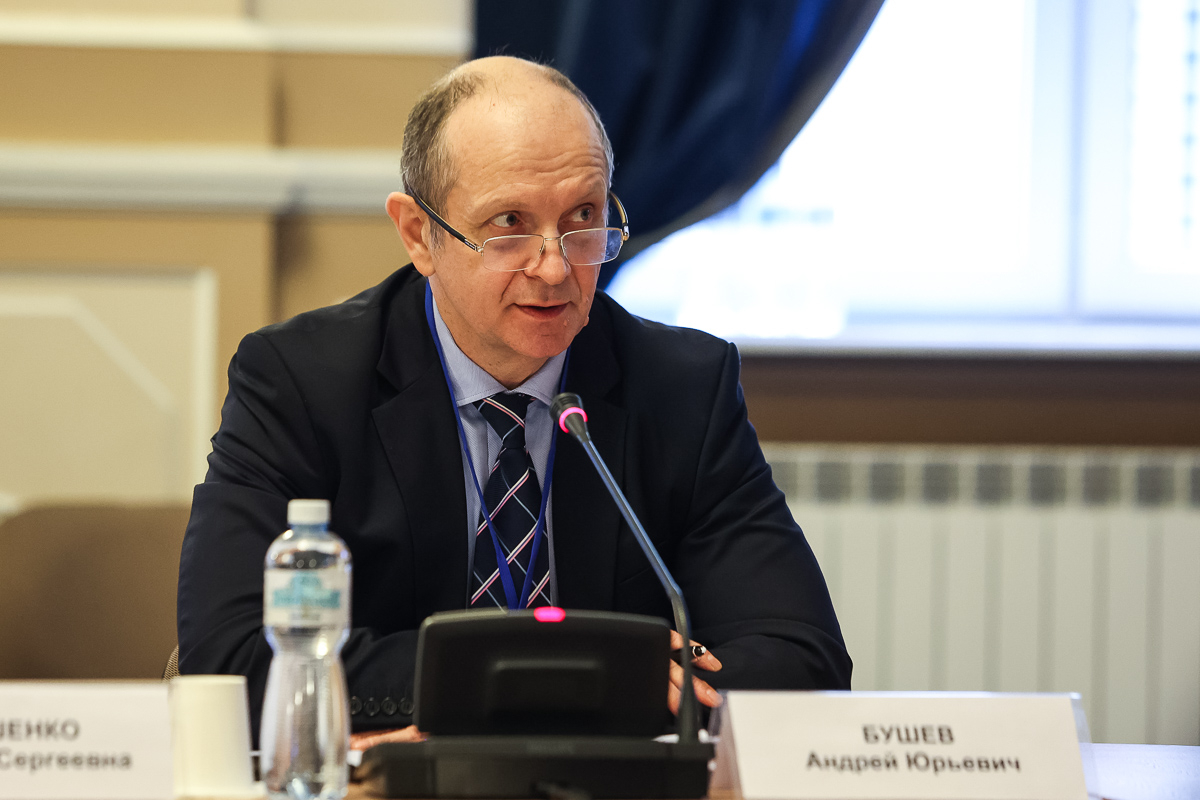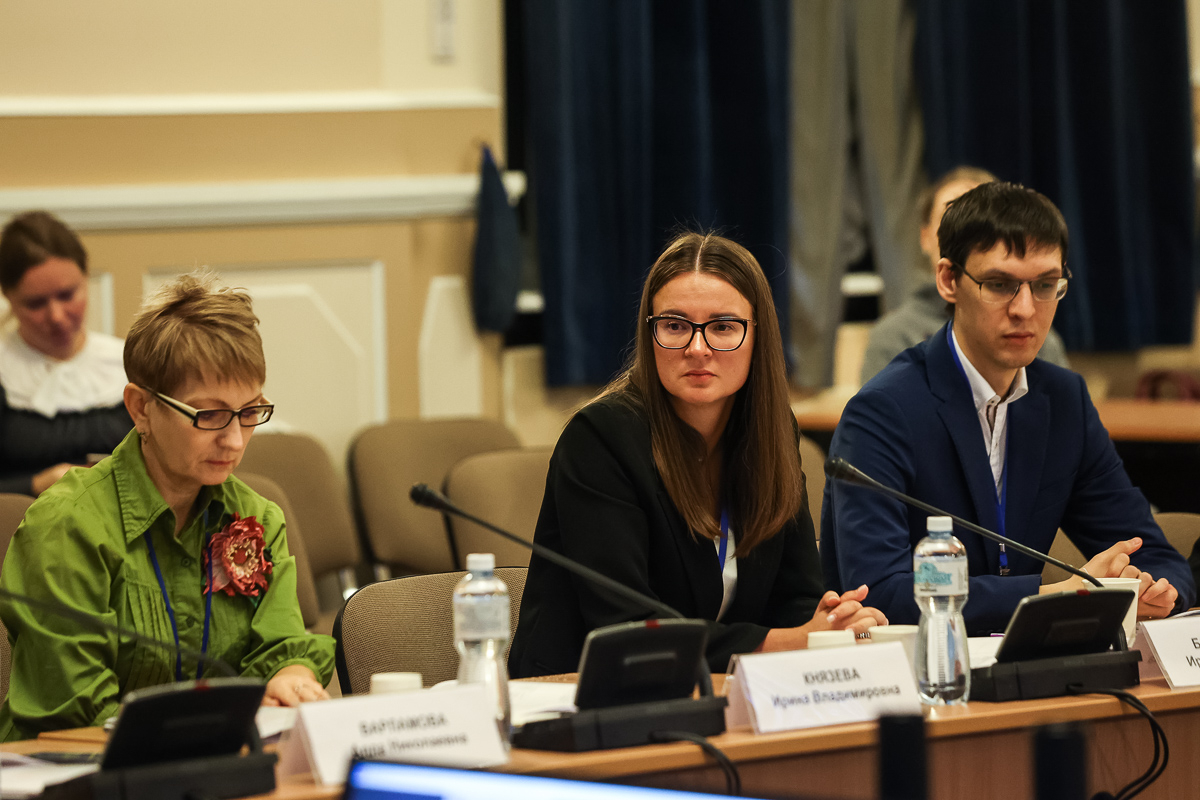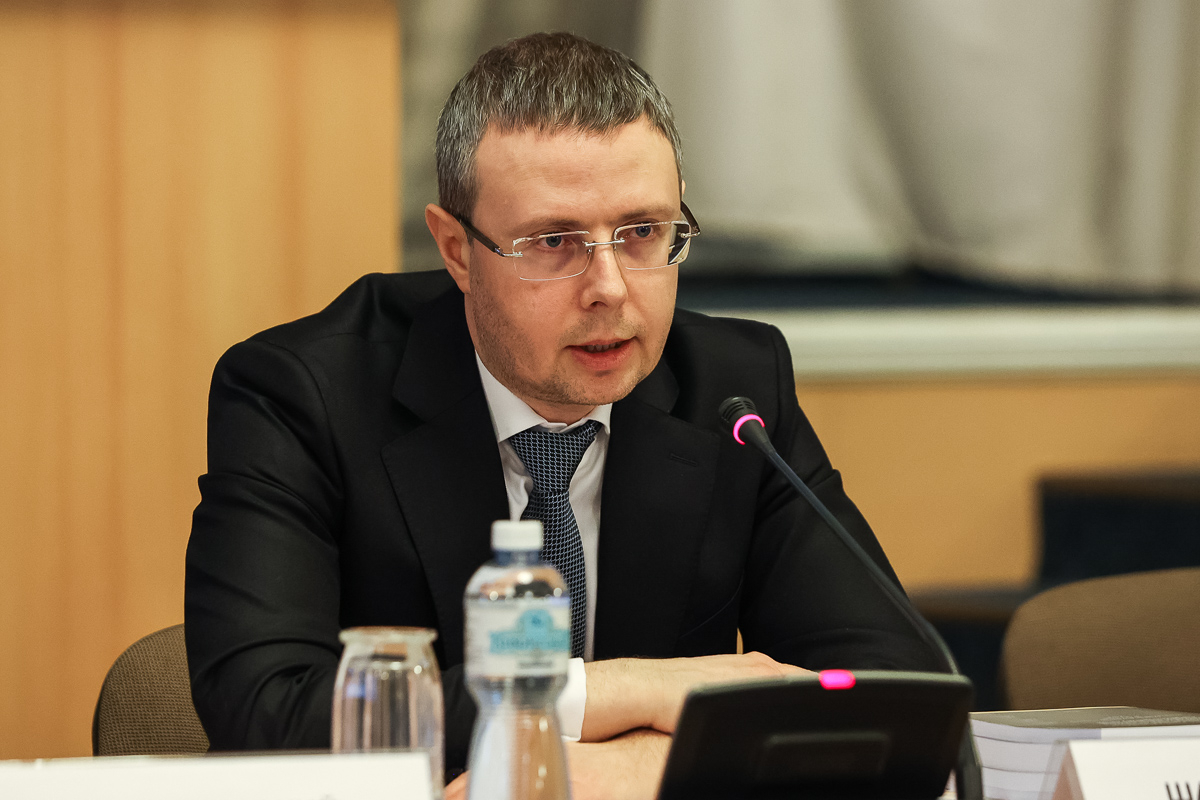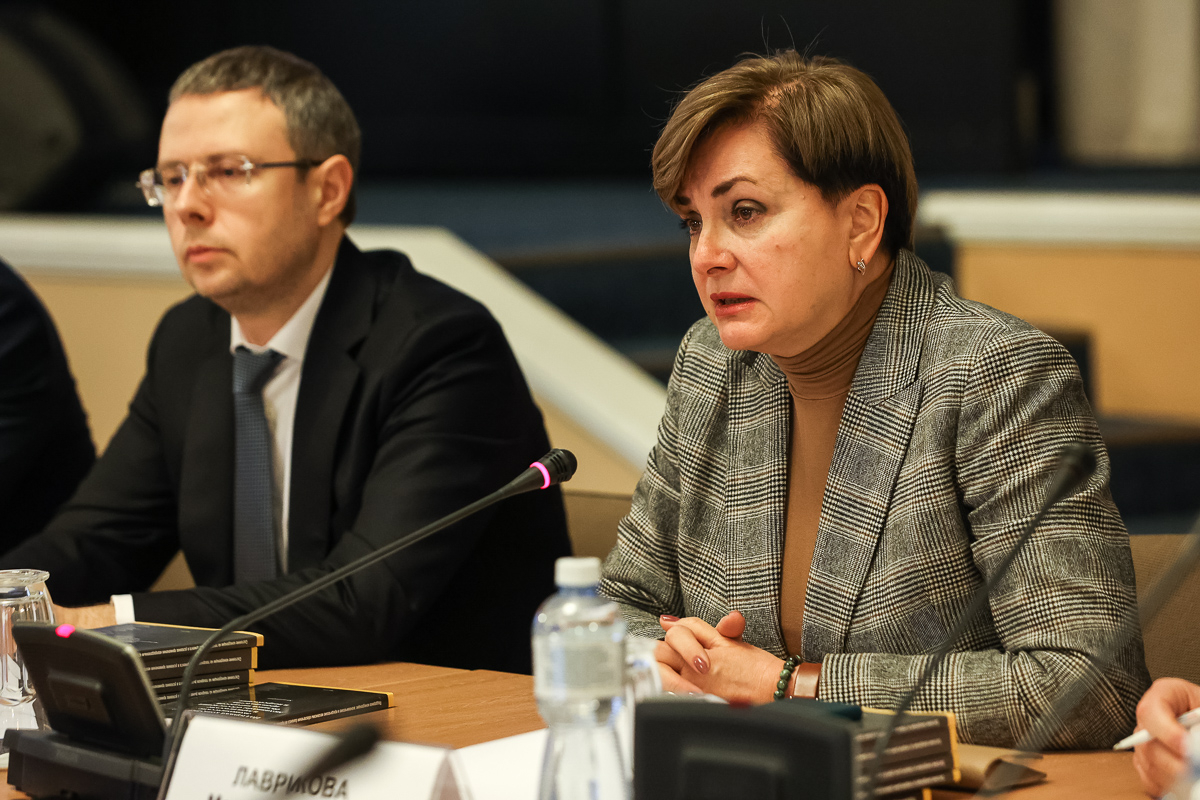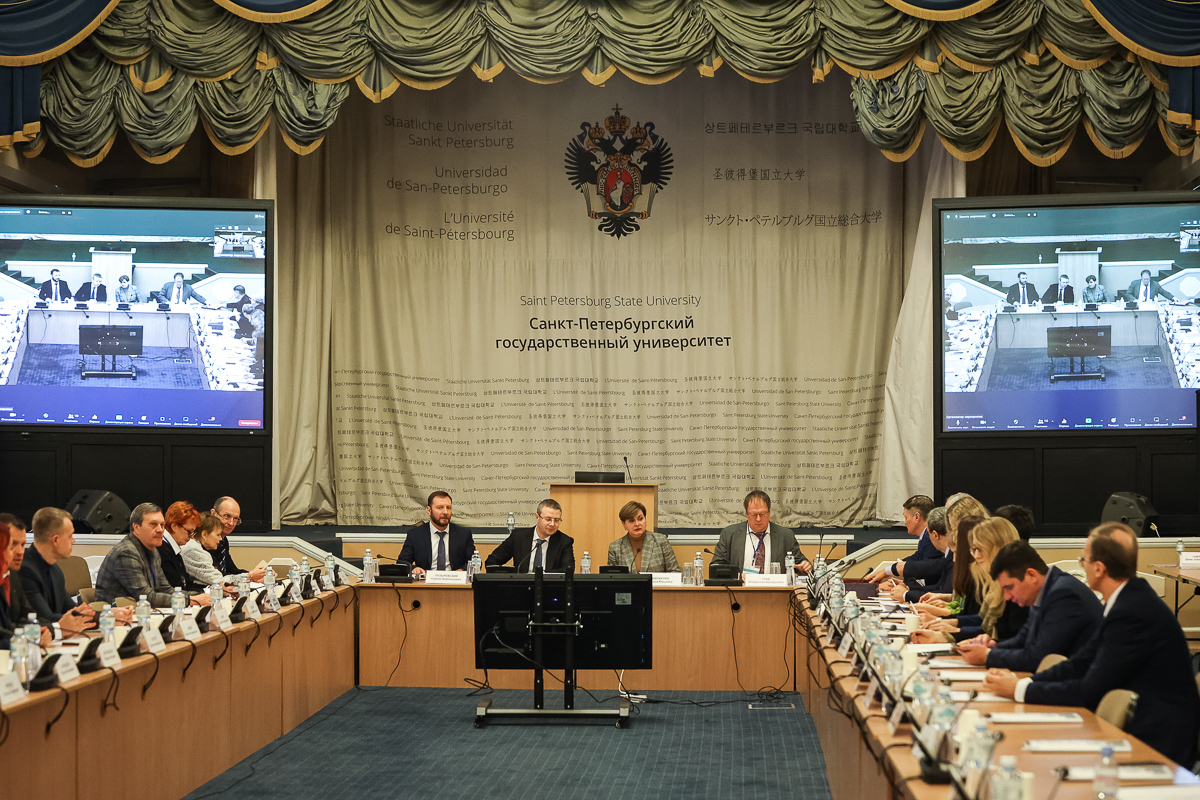Beneficial competition: St Petersburg University discusses the changes in antimonopoly regulation
St Petersburg University has held the 6th International Scientific and Practical Conference "Protection of Competition under Global Economic and Social Changes". It focused on what changes had been introduced in antimonopoly regulation in Russia last year and why it is important that methodology and research should underpin any legislative innovations.
The conference brought together representatives of science and higher education; the Federal Antimonopoly Service of the Russian Federation; the Supreme Court of the Russian Federation; the Constitutional Court of the Russian Federation; the Court of the Eurasian Economic Union; the Arbitration Court of the Northwestern District; the State Duma; and business. The conference focused on the following: the conditions to ensure competition in sectoral commodity markets; pricing factors in Russia; the conditions for selling goods on stock exchanges; legal mechanisms for balancing the interests of production and consumption; and mechanisms for holding property auctions.
The cooperation between the University and the Federal Antimonopoly Service is unique, said Marina Lavrikova, Senior Vice-Rector for Academic Activities at St Petersburg University. In September 2017, St Petersburg University and the Federal Antimonopoly Service opened the Department of Legal Protection of Economic Competition at St Petersburg University. Later, it was transformed into the Institute for Competition Development and Antimonopoly Regulation.
A year later, St Petersburg University and the Federal Antimonopoly Service signed an agreement on cooperation in expert evaluation, research, and education. The agreement included the implementation of the National Competition Promotion Plan that was approved by the Executive Order of the President of the Russian Federation. The Council of the new master’s programme "Legal Protection of Economic Competition" was headed by Igor Artemyev, a graduate of St Petersburg University and an assistant to the Prime Minister of the Russian Federation. He was the head of the Federal Antimonopoly Service at that time.
The programme prepares antitrust lawyers. They are in short supply for the legal labour market. The key feature of the programme is that it provides a diverse interdisciplinary degree that bridges law, economics, and sociology. Another important feature is that it is practice-oriented. There is emphasis placed on the regulation of the leading sectors of the economy by the antimonopoly authority: tariff regulation; procurement; bidding; anticompetitive agreements; natural monopolies; trading activities; foreign investment; and advertising.
Methodological justification must underpin any changes in legislation. Research, the world’s best practices, and education in the field of competition development are very high priority with the Federal Antimonopoly Service, said Maksim Shaskolsky, Head of the Federal Antimonopoly Service.
Maksim Shaskolsky shared the results of the Federal Antimonopoly Service last year and outlined the tasks for the current year. Among these tasks is to improve price control. In 2022, 11 federal retail chains immediately decreased markups on 25 categories of socially important food products. The decrease of markups from 22% to 5.5% was immediately noticeable to the end users. Apart from the federal retail chains, this approach was supported by 79 regional retail chains.
Another important task of the Federal Antimonopoly Service is to ensure price control for vital and essential medicines, including the setting of price limits.
It is important that the measures should not only strengthen control over market players, but also develop competition, increase production in Russia, and prevent shortages in the Russian drug market.
In response to external economic constraints, 2022 introduced parallel import mechanisms. There is the need to introduce parallel imports for all goods, with the exception of those localised in the Russian Federation, said Maksim Shaskolsky. This mechanism is important for maintaining a competitive environment, as it reduces the bargaining power of the right holder, saturates the market, lowers or controls prices, creates new jobs, and provides new opportunities for small and medium-sized businesses.
There were advances in exchange trading. They enabled us to reduce the influence of world prices, for example, in the fuel market. We tightened control over the abuses of digital giants such as Google, Microsoft and Apple. Additionally, we strengthened control over marketplaces that started to occupy an increasing share of the market and, by using their dominant position, imposed unnecessary services on the consumer; put suppliers at a disadvantage by changing the terms and conditions of contracts; display illegal, false advertising; and use opaque conditions for issuing content.
In 2022, a number of temporary measures were implemented to reduce the administrative burden on businesses, said the participants in the conference. There was a decrease in the payments under contracts for the installation and operation of advertising structures. There were changes in the procedure for granting preferences to entrepreneurs. In some cases, public sector should only notify the Federal Antimonopoly Service about the provision of preferences, rather than approve them with the Federal Antimonopoly Service.
Scientists and representatives of public sector and business emphasised that any legislative changes should, among other things, ensure a balance between private and public interests: business, consumers, and public sector.
On the eve of the scientific and practical conference, St Petersburg University held an extended meeting of the Scientific and Methodological Council of Educational Institutions; Departments of Competition Law and Antimonopoly Regulation of the Federal Antimonopoly Service of Russia; and the Committee on Competition Law and Improvement of Antimonopoly Legislation of the Association of Lawyers of Russia.
The participants discussed the content of the state standard for the system of legal and organisational measures that are aimed at complying with the requirements of the antimonopoly law and preventing its violation (antimonopoly compliance). The standard stipulates general approaches and requirements, rules and procedures for the development and adoption of internal company documents on the risk prevention mechanism. The development of the standard is still underway. The GOST (Russian National Standard) is planned to be introduced in early 2024.


